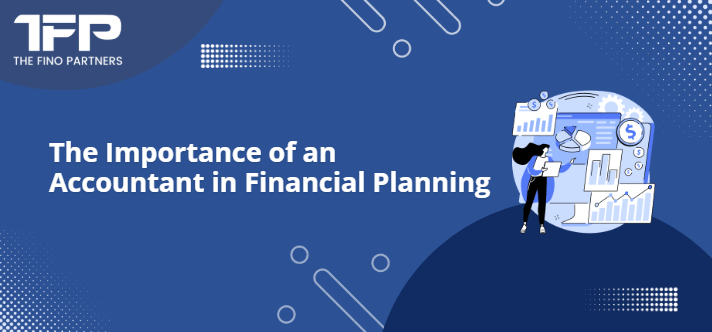In a world of increasingly complex financial decisions, however, the question isn’t whether you need help — it’s who should help. Many individuals and businesses eventually realize they need an accountant to help with financial planning. Whether it’s crafting tax-efficient investing strategies to advising you on long-term wealth planning, accountants serve as your best partners in taking financial confusion to clarification.
What Is Included In Financial Planning?
Financial planning is much more than budget management. It includes retirement planning, estate planning, tax optimization, investment allocation, debt management, and risk mitigation. A structured approach ensures you don’t miss out on saving opportunities and it can prevent costly mistakes.
Enter: the certified public accountant (CPA). A credentialed accountant not just guides you through the daily management of your money but helps you align your financial strategies with life goals — be they purchasing a home, sending children to college or retiring comfortably.
How Accountants Make a Difference
1. Tax Planning and Savings Optimization
First, accountants are essential for maneuvering through the US tax system. The IRS tax code is more than 7,000 pages long, so even the smallest mistake can cost big dollars. Here are some ways how working with an accountant will be beneficial:
- Take all deductions and credits you qualify for
- Avoid overpaying on taxes
- Get set up for quarterly estimated tax payments
- Minimize capital gains taxes
This is particularly important for freelancers, investors and small business owners, who aren’t subject to the standard withholdings that an employer would take on your behalf.
2. Cash Flow and Budgeting Strategies
Poor cash flow management is one of the biggest reasons people say they need accountant to help with financial planning. Accountants track your income and expenses, spot spending leaks, and develop a customized budget.
And a recent survey by Bankrate found that 57% of US adults say they would have a difficult time covering a $1,000 emergency expense. A good accountant makes sure you create adequate emergency savings & keep out of debt traps.
3. Retirement and Investment Planning
Be it a 401(k) plan, IRA, or Roth account, accountants can help you decide the best plan based on your income, goals, and tax situation. They also coordinate with financial advisers to ensure that your investment returns fit with your risk tolerance and time frame.
4. Business Advisor & Forecasting
And if you’re an entrepreneur you need more than bookkeeping. Professional accountants provides Forecasting services, identifies opportunities for business growth, gives advice on business loans or expansion strategies and operational risks.
They also assist in assembling key financial documents, such as profit & loss statements, cash flow projections and balance sheets, that facilitate improved business management.
When to Hire an Accountant?
Most people feel accountants are only for tax season. They are actually valuable all year long. You may want to hire an accountant if you:
- Starting or selling a business
- Remember all the money you got when you got inheritance?
- In short, you have a stable job, receive active income, or active income.
- Are saving for retirement or college
- Need help managing debt
- Going through major life changes (marriage, divorce, etc.)
Personalized Financial Planning vs. Generic Tools
Though online platforms, such as Mint, TurboTax and robo-advisors, are useful, they do not provide the human awareness and judgement that accountants can. Personalized attention becomes especially critical for those with multiple income streams or complicated investments or who have variable expenses.
An accountant provides you with a holistic picture of your finances, considering legal, economic, lifestyle issues that an app can never do.
How to Choose the Best Accountant for You
Here are some important things to consider when hiring an accountant.
- Certification: Double-check that they’re a licensed CPA or an enrolled agent with the IRS.
- Experience: Look for someone who has experience with your specific financial needs (whether it’s small business, estate planning, or investments).
- Communication: Choose someone who can translate concepts into plain English, not simply accounting lingo.
- Technology: The CPA should be able to use cloud-based software for greater collaboration and data reliability.
Importance of a Long-Term Accountant
Formatting
A pro in your corner means peace of mind that you’re making informed decisions. You won’t just manage money—you’ll manage wealth with purpose.
Avoiding Costly Mistakes
A tax filing mistake, poor investment timing or a bad business at bat can cost sage thousands of dollars. Accountants provide the professional oversight that can help avoid these errors.
Time-Saving
Financial planning takes time. Let an accountant do the work, so you can be doing yours, running a business, or living your life.
Also Read | Should I Hire an Accountant for My Small Company?
Final Thoughts
If you’ve been feeling overwhelmed by taxes, investments or the handling of your everyday financial life, it’s time to recognize the actual value of the need. You need an accountant to help with financial planning not just to save money, but to strategically grow it. With expert advice, you’ll be more prepared for the future and more confident in the present.




























